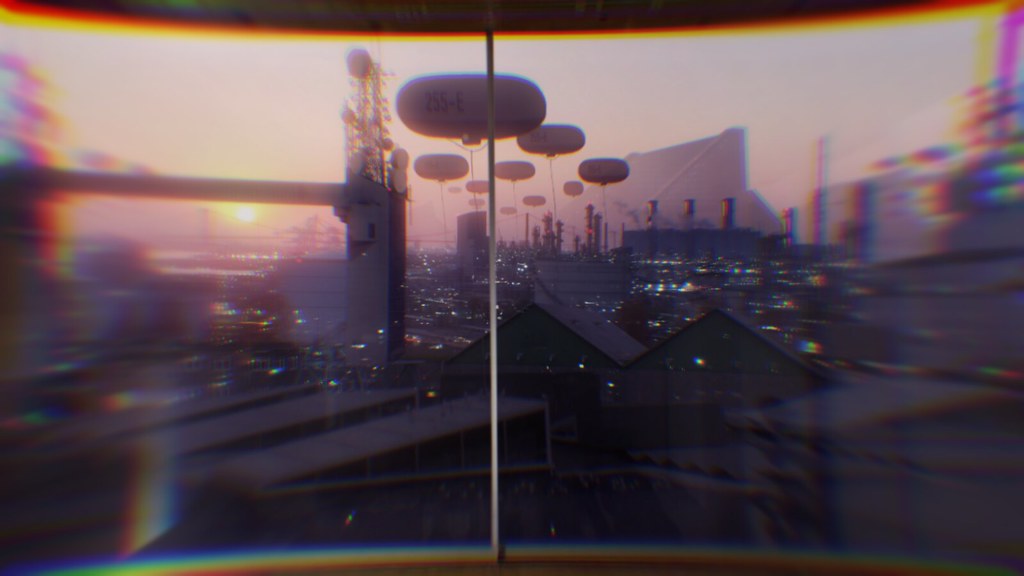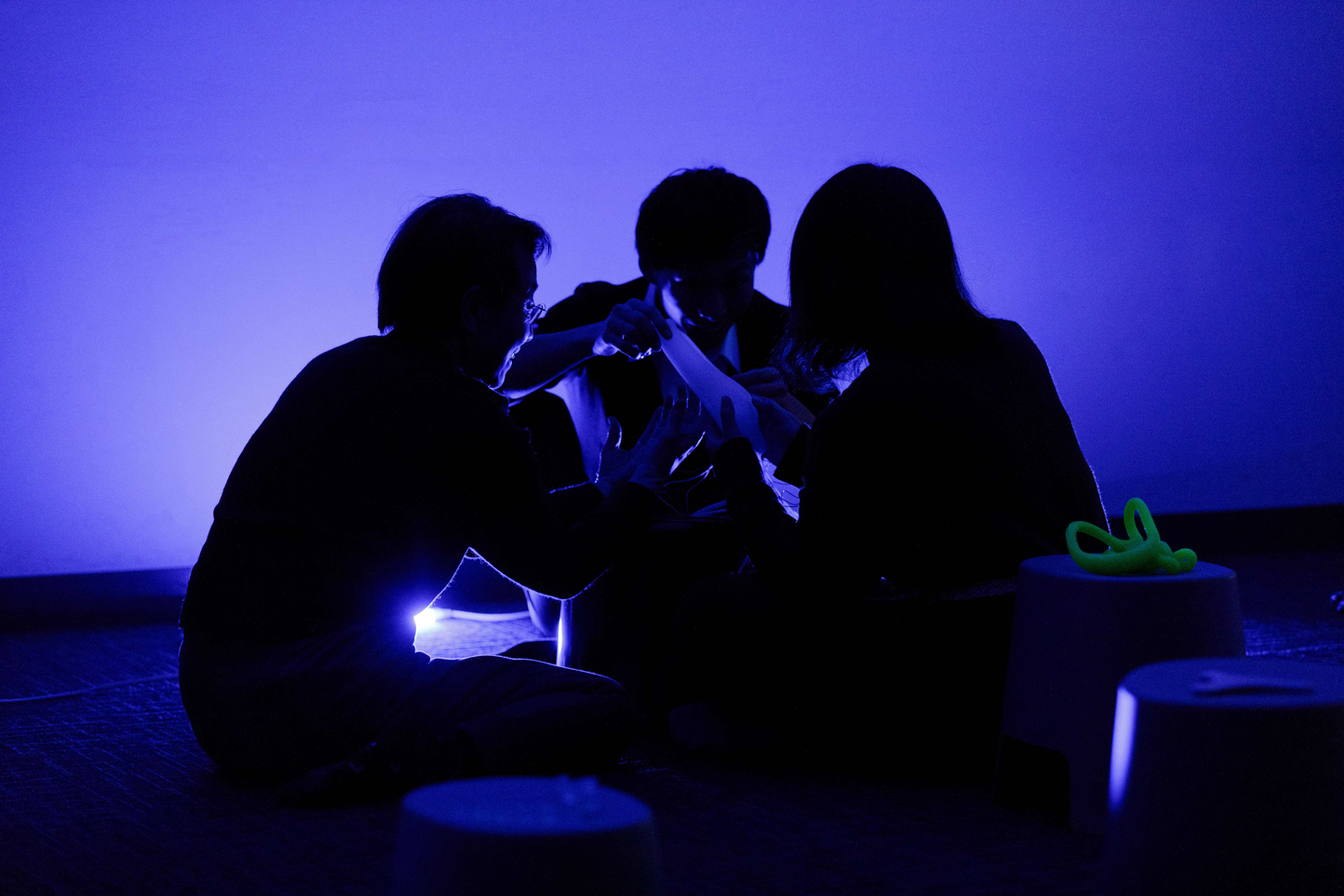Talk and Conversation
![]()
2097: We Made Ourselves Over
Time: 12noon - 1pm
2097 was a science fiction project that took participants on a journey
into an imagined future. Blast Theory worked with diverse communities from Hull in the UK and Aarhus in
Denmark to develop visions of the world in 2097. Five sci-fi films were shot on location across the two
cities, starring a local cast. An interactive app accompanied the films and audiences took part in live
immersive experiences in Hull and Aarhus.
Inspired by the respective histories of communities in Aarhus and Hull, Blast Theory worked with dozens of residents, from Year 10 students and over-60’s groups, to those looking to create change in their cities with everything from shipping containers to crypto-currencies while drawing on the work of futurologists, technologists and climate scientists.
Inspired by the respective histories of communities in Aarhus and Hull, Blast Theory worked with dozens of residents, from Year 10 students and over-60’s groups, to those looking to create change in their cities with everything from shipping containers to crypto-currencies while drawing on the work of futurologists, technologists and climate scientists.
LARP (interactive)
![]()
PSY-SOMA-TEK
Time: 1pm - 3pm
Throughout
April 2021, Susan Ploetz is developing a series of iterative role
plays, podcasts, and one-on-one appointments where participants will
explore
a variety of embodied extra-sensory techniques inside the fictional
framing of a speculative institution called PSY-SOMA-TEK. Founded by a
mysterious figure in a time of crisis, the institute seeks to create
sustainable psy-somatic technologies to find missing
people, see into the past and future, communicate and connect across
distances, decentralize knowledge and extend powers to those in need and
more when the techno-suprastructures of the old order have started to
fall apart. For Blend and Bleed, Ploetz will
talk a bit about the project and lead a small sample of a role play from
the PSY-SOMA-TEK institute. Participants will spend some time creating
characters beforehand and will explore a somatic telepathy exercise
within the world together. More information
will be sent after signing-up.
Susan Ploetz
Susan Ploetz (US/DE) is an artist-researcher working with somatics,
theory, writing, performance, simulation and live action role plays (larping) in different configurations.
Her work deals with the overlapping spaces of soma and technos; she uses imagination, magical materiality,
and protocol to induce emancipatory emotive dissonances and perceptual expansion. She explores body-centered
game design and narrative-building play as co-creative world-making that develops individual agency within
spontaneous, ephemeral, decentralized communities.
She has presented work at such institutions as the Berliner Festspiele, Oude Kerk, Sophiensaele, ABC Art Fair, Rupert (Vilnius), Documenta 13, Portland Institute of Contemporary Art, Aoyama Gakuin University (Tokyo), and Performa. She has been a guest artist/teacher, lectured or given workshops at Universität der Kunst Berlin, Gerrit Reitveld Academie, Piet Zwart Institute, the DAAD, the Pervasive Media Studio (Bristol), SUNY Buffalo, and the Dutch Art Institute.
She has presented work at such institutions as the Berliner Festspiele, Oude Kerk, Sophiensaele, ABC Art Fair, Rupert (Vilnius), Documenta 13, Portland Institute of Contemporary Art, Aoyama Gakuin University (Tokyo), and Performa. She has been a guest artist/teacher, lectured or given workshops at Universität der Kunst Berlin, Gerrit Reitveld Academie, Piet Zwart Institute, the DAAD, the Pervasive Media Studio (Bristol), SUNY Buffalo, and the Dutch Art Institute.
Ju Row Farr
Ju Row Farr trained in dance and went on to study for a BA in Fine
Art/Textiles at Goldsmiths. In 1991 she co-founded artists’ group Blast Theory.
Blast Theory creates interactive art to explore social and political questions, placing audience members at the centre of the work. They draw on popular culture, performance, technology and games, the work often blurring the boundaries between the real and the fictional. In virtual and physical spaces from pubs, canals and abandoned warehouses to libraries, museums and apps, Blast Theory have presented their work at the Venice Biennale, Sundance Film Festival and Tate Britain. Their awards include 4 BAFTA nominations, the Golden Nica for Interactive Arts at Prix Ars Electronica and the Nam June Paik, Art Centre Prize.
Ju has contributed to many academic papers with the Mixed Reality Lab, University of Nottingham, whom Blast Theory has collaborated with since 1997. She has taught and spoken extensively about Blast Theory’s work around the world, from UCLA, to De Montfort University, from Belgrade’s Play UK 2020 and as a Thinker in Residence for the South Australian Government in 2004.
Blast Theory creates interactive art to explore social and political questions, placing audience members at the centre of the work. They draw on popular culture, performance, technology and games, the work often blurring the boundaries between the real and the fictional. In virtual and physical spaces from pubs, canals and abandoned warehouses to libraries, museums and apps, Blast Theory have presented their work at the Venice Biennale, Sundance Film Festival and Tate Britain. Their awards include 4 BAFTA nominations, the Golden Nica for Interactive Arts at Prix Ars Electronica and the Nam June Paik, Art Centre Prize.
Ju has contributed to many academic papers with the Mixed Reality Lab, University of Nottingham, whom Blast Theory has collaborated with since 1997. She has taught and spoken extensively about Blast Theory’s work around the world, from UCLA, to De Montfort University, from Belgrade’s Play UK 2020 and as a Thinker in Residence for the South Australian Government in 2004.